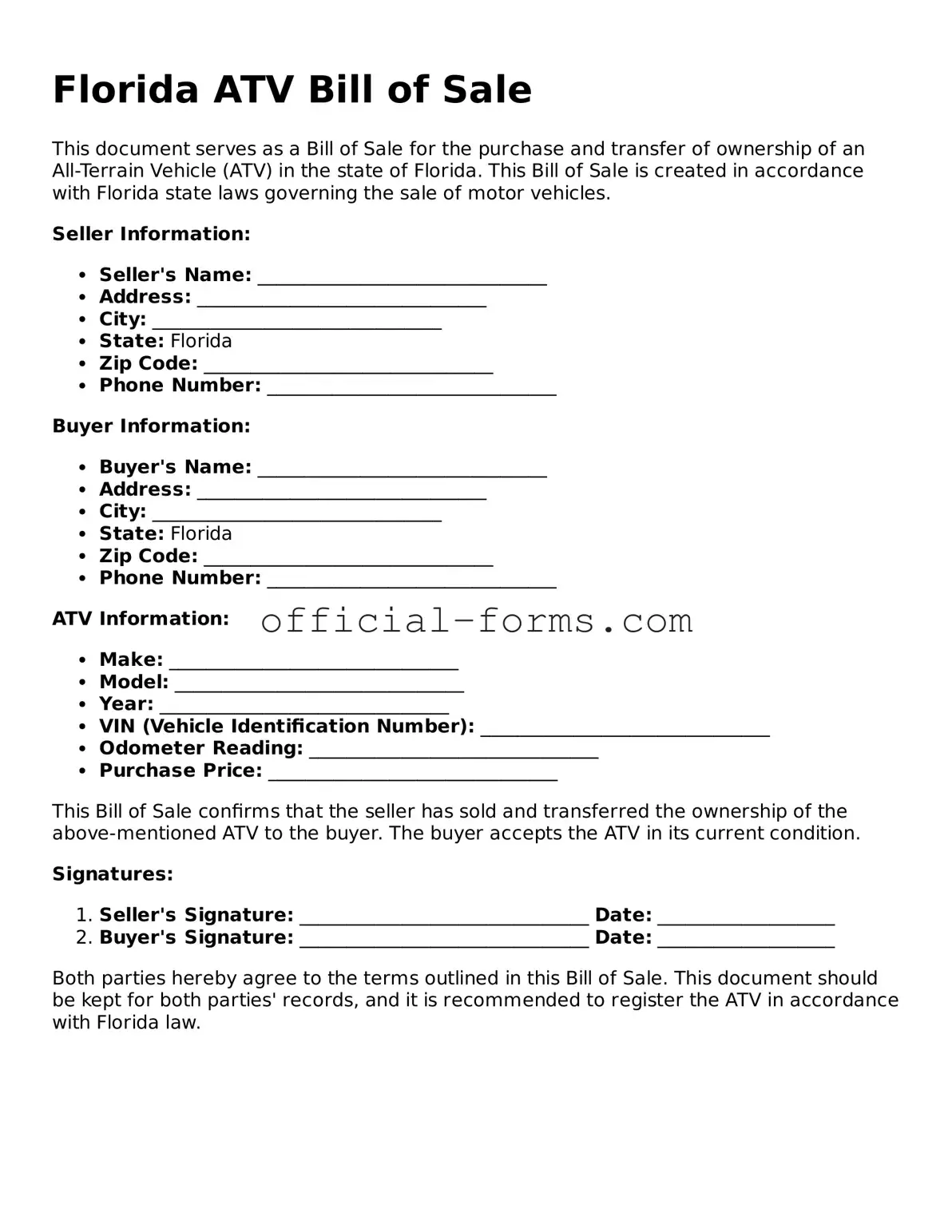When filling out the Florida ATV Bill of Sale form, many individuals inadvertently make mistakes that can lead to complications down the road. One common error is failing to include the correct Vehicle Identification Number (VIN). The VIN is crucial for identifying the specific ATV being sold. If this number is incorrect or missing, it could create issues with registration or ownership disputes later on.
Another frequent mistake is neglecting to provide accurate personal information. Sellers and buyers should ensure that their names, addresses, and contact details are clearly written. Incomplete or incorrect information can hinder communication and may even affect the validity of the sale.
Many people overlook the importance of including the sale price. The form requires a clear statement of the amount agreed upon for the sale. Omitting this detail could lead to confusion or disputes about the transaction's terms.
Additionally, some individuals forget to sign the form. Both the seller and buyer must sign the Bill of Sale for it to be legally binding. Without signatures, the document lacks authenticity and may not be recognized by authorities.
Another mistake involves not dating the document. A Bill of Sale should include the date of the transaction. This date serves as a record for both parties and is essential for tracking ownership transfer.
Failing to provide a clear description of the ATV is also a common oversight. The form should include details such as the make, model, year, and color of the vehicle. A vague description can lead to misunderstandings and disputes about what was sold.
Some people may forget to mention any existing liens on the ATV. If the vehicle has outstanding loans or claims against it, this information must be disclosed. Failing to do so could result in legal repercussions for the seller.
Another issue arises when individuals do not check for discrepancies between the form and the ATV's title. It's essential that the information matches, as inconsistencies can lead to complications during the registration process.
Lastly, many individuals neglect to keep a copy of the completed Bill of Sale. Retaining a copy is crucial for both parties as it serves as proof of the transaction. Without it, either party may struggle to resolve future disputes regarding the sale.
By being aware of these common mistakes, individuals can ensure a smoother transaction process when filling out the Florida ATV Bill of Sale form. Attention to detail can save both buyers and sellers from potential headaches in the future.

